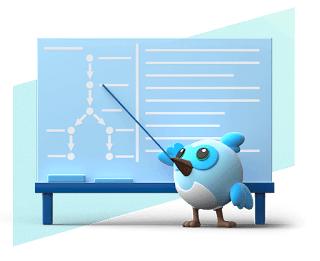Discover the simplicity behind building better Flutter apps. Uncover the magic of SOLID principles and learn how they can make your code cleaner and more maintainable.
SOLID Principles
| Principle | Explanation |
|---|---|
| Single Responsibility Principle (SRP) | A class should have only one reason to change. |
| Open/Closed Principle (OCP) | A class should be open for extension but closed for modification. |
| Liskov Substitution Principle (LSP) | Objects of a superclass should be able to replace objects of the subclass without affecting correctness. |
| Interface Segregation Principle (ISP) | A class should not be forced to implement interfaces it does not use. |
| Dependency Inversion Principle (DIP) | High-level modules should not depend on low-level modules. Both should depend on abstractions. |
Single Responsibility Principle (SRP)
A solid principle begins with an “S”: the SINGLE RESPONSIBILITY PRINCIPLE.
A class should have only one reason to change, and it should encapsulate only one responsibility or job within a software system.
This principle promotes
* clarity,
* collaboration and parallel development,
* testability,
* reduced code coupling,
* maintainability, and
*flexibility by ensuring that each class has a well-defined purpose and that changes to one aspect of the system do not affect unrelated aspects encapsulated within the same class.
Open/Closed Principle (OCP)
In addition, there is a second big principle that starts with an “O” called the OPEN-CLOSED PRINCIPLE.In summary, the Open/Closed Principle encourages a design approach that supports
* future changes and enhancements without modifying existing code,
* contributing to a more maintainable,
* scalable, and
* adaptable software system.
Dependency Inversion Principle (DIP)
Lastly, the last principle that is very important in software engineering, which starts with a “D”, is the DEPENDENCY INVERSION PRINCIPLE, which states that high-level modules must not depend on low-level modules without an abstraction.
It states that high-level modules (which contain the main business logic) should not depend on low-level modules (which implement details), but both should depend on abstractions.
Additionally, abstractions should not depend on details; details should depend on abstractions.
This principle encourages the use of interfaces or abstract classes to create a level of indirection,
* allowing for flexibility,
* extensibility,
* ease of testing, and
* easier maintenance in a software system.
..
- Increased maintainability
- Reduced code size
- Improved code quality
- Easy to understand
- Easy to maintain
- Easy to extend
- Efficient
Here are some key benefits of following the YAGNI principle:
- Reduced development time
- Improved code quality
- Increased flexibility and adaptability
- Reduced risk of technical debt







